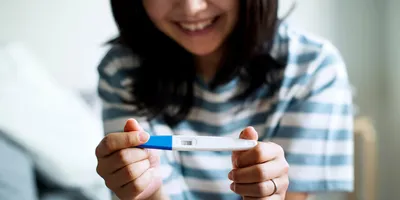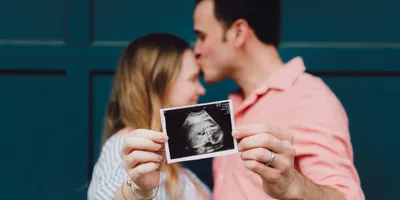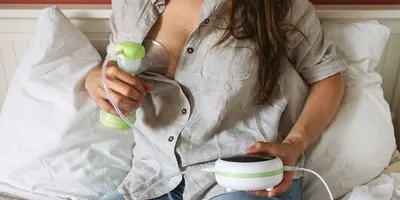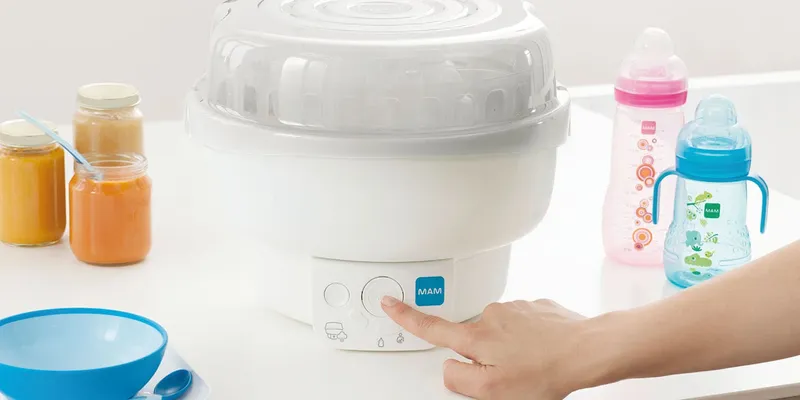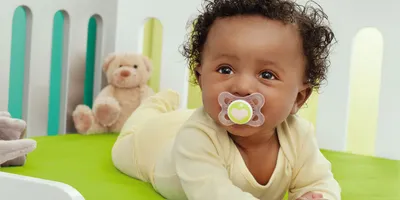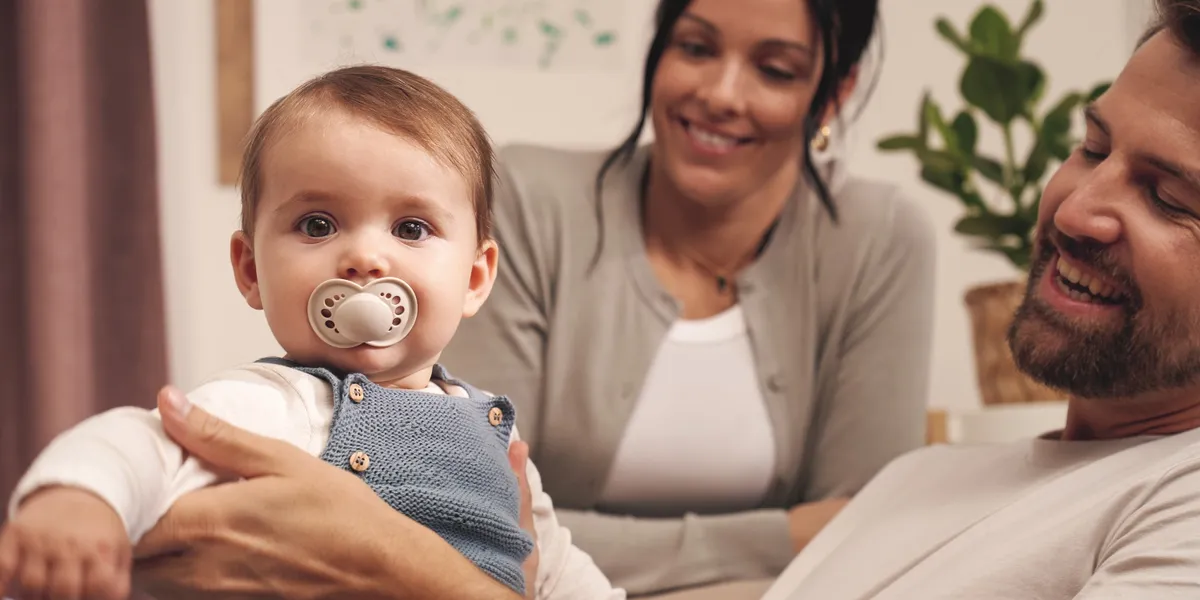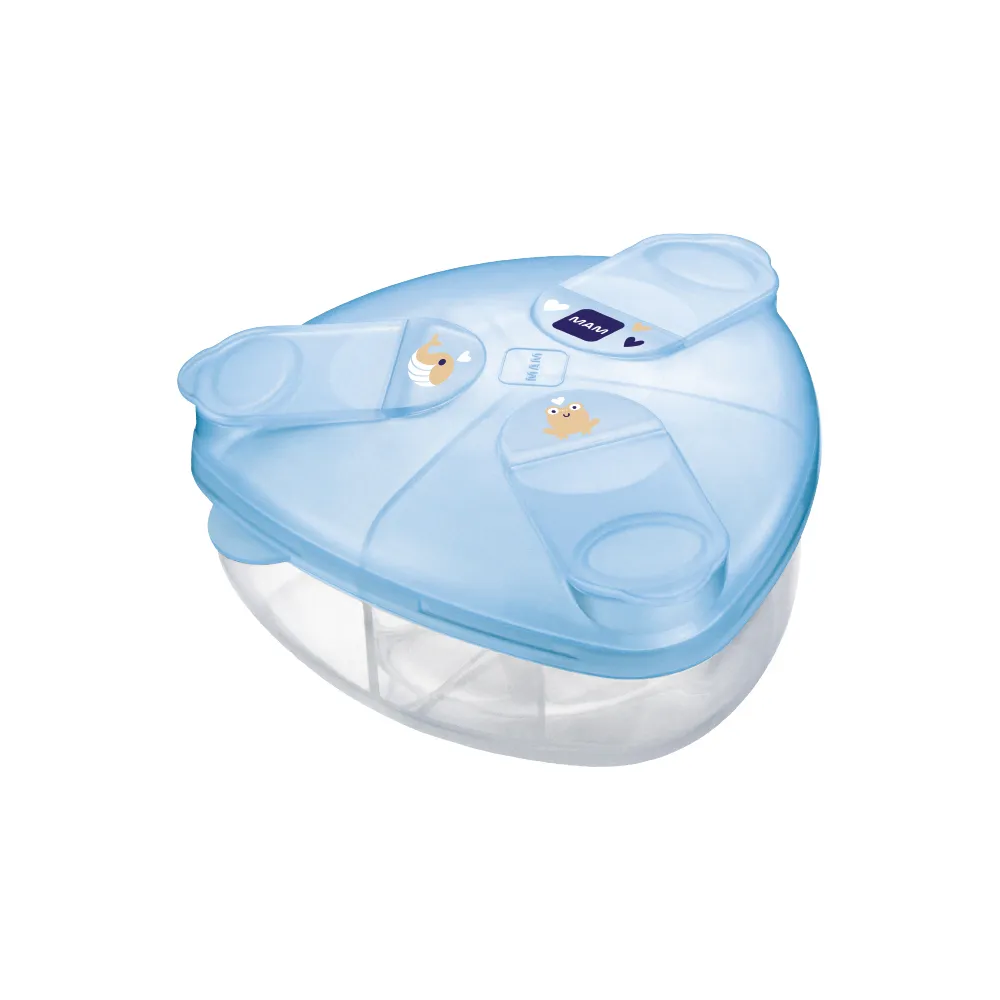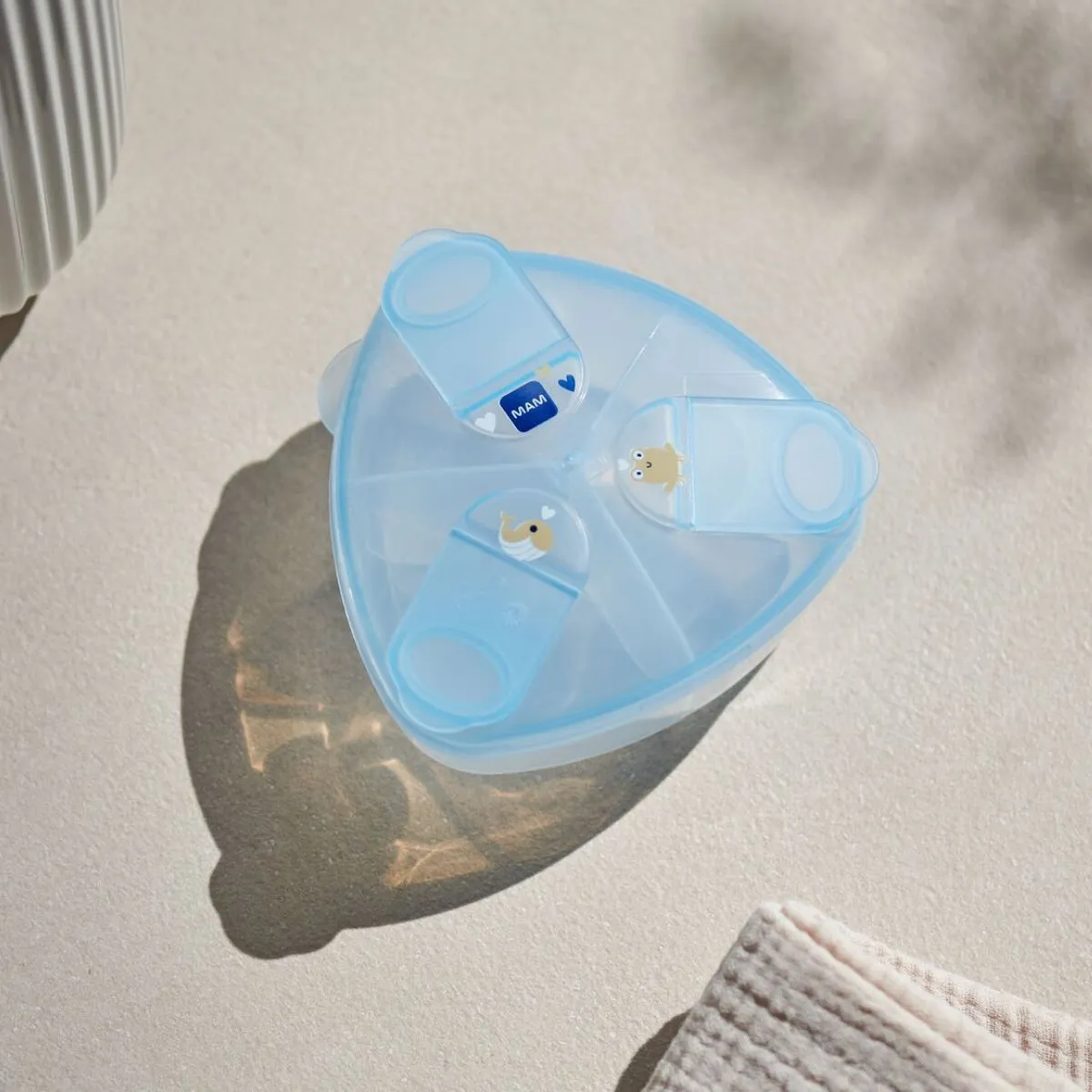Dispensador de leche en polvo
El dispensador de leche en polvo es especialmente liviano y alberga hasta 3 porciones de leche en polvo. Gracias a su forma triangular innovadora, la leche en polvo puede extraerse fácilmente, llenando los biberones sin dejar restos. ¡Perfecto para los padres activos e ideal para los paseos!
- Forma triangular para llenar fácilmente los biberones
- 3 compartimientos para porciones súper grandes.
- Cierres rápidos anti-derrames para abrir, llenar y cerrar fácilmente.
- Cantidad por porción: hasta 40 g
- Idóneo para esterilizar y para colocar en el lavavajillas
- Se adecua también para conservar piscolabis, chupetes o tetinas
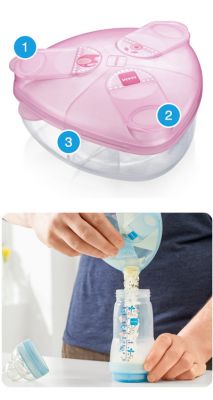
1. TAPONES DE LOS COMPARTIMENTOS
Permiten un fácil llenado. Fáciles de abrir y cerrar. A prueba de derrames.
2. FORMA TRIANGULAR
Grandes aberturas en las esquinas - la leche en polvo se puede vaciar completamente. Ideal para todas las bocas de los biberones.
3. DISEÑO MAM
Muy plano - cabe en cualquier bolso. Ideal para utilizar en casa o llevar de un lado a otro.
| Accesorios: | Accesorios de biberones |
|---|---|
| Color: | Arctic Blue, Ivory, Quartz Rose |
| Etapas de la vida: | 0+ meses |
| Product: | Bottle/ Cup Accessories |
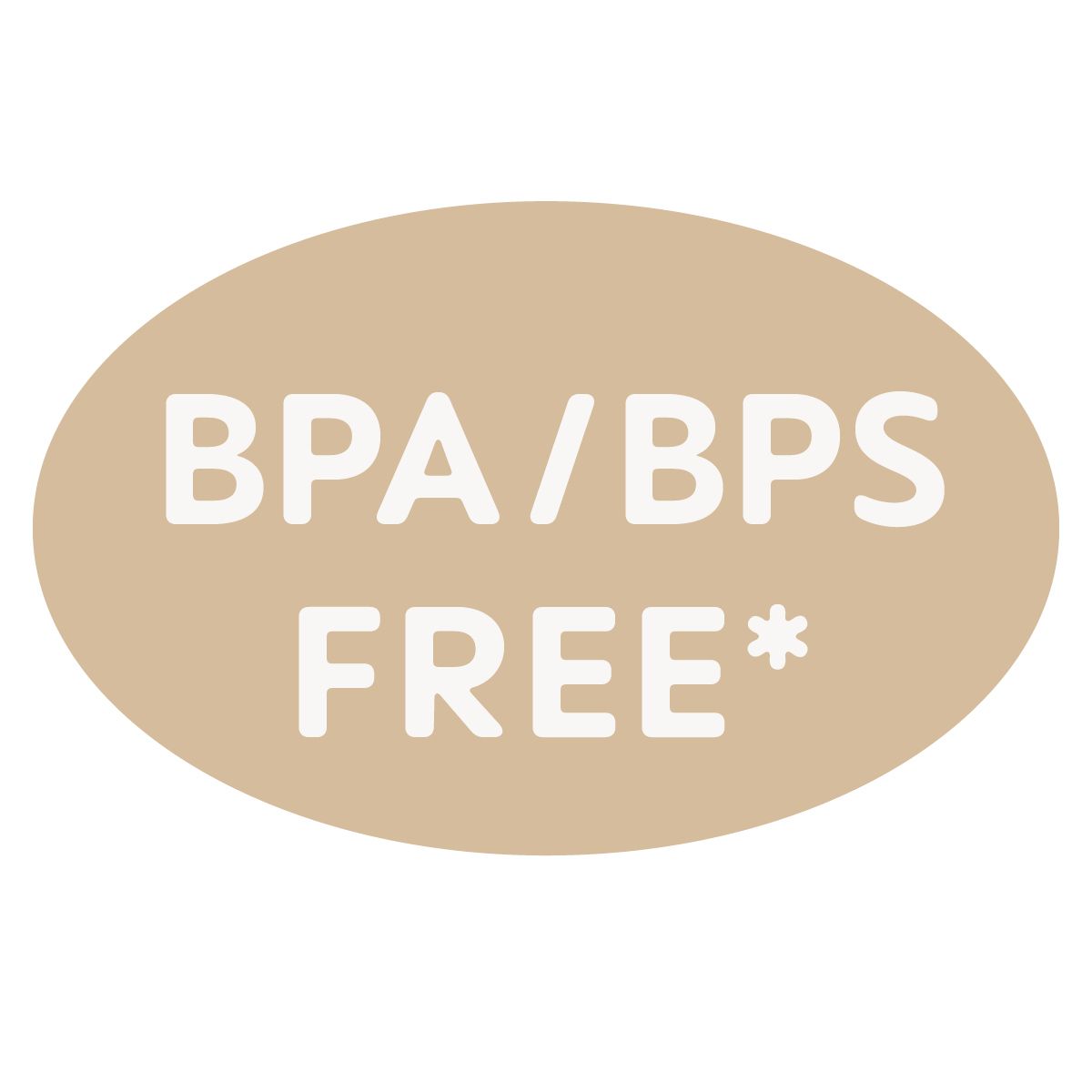
Todos los productos MAM están fabricados con materiales libres de BPA y BPS.
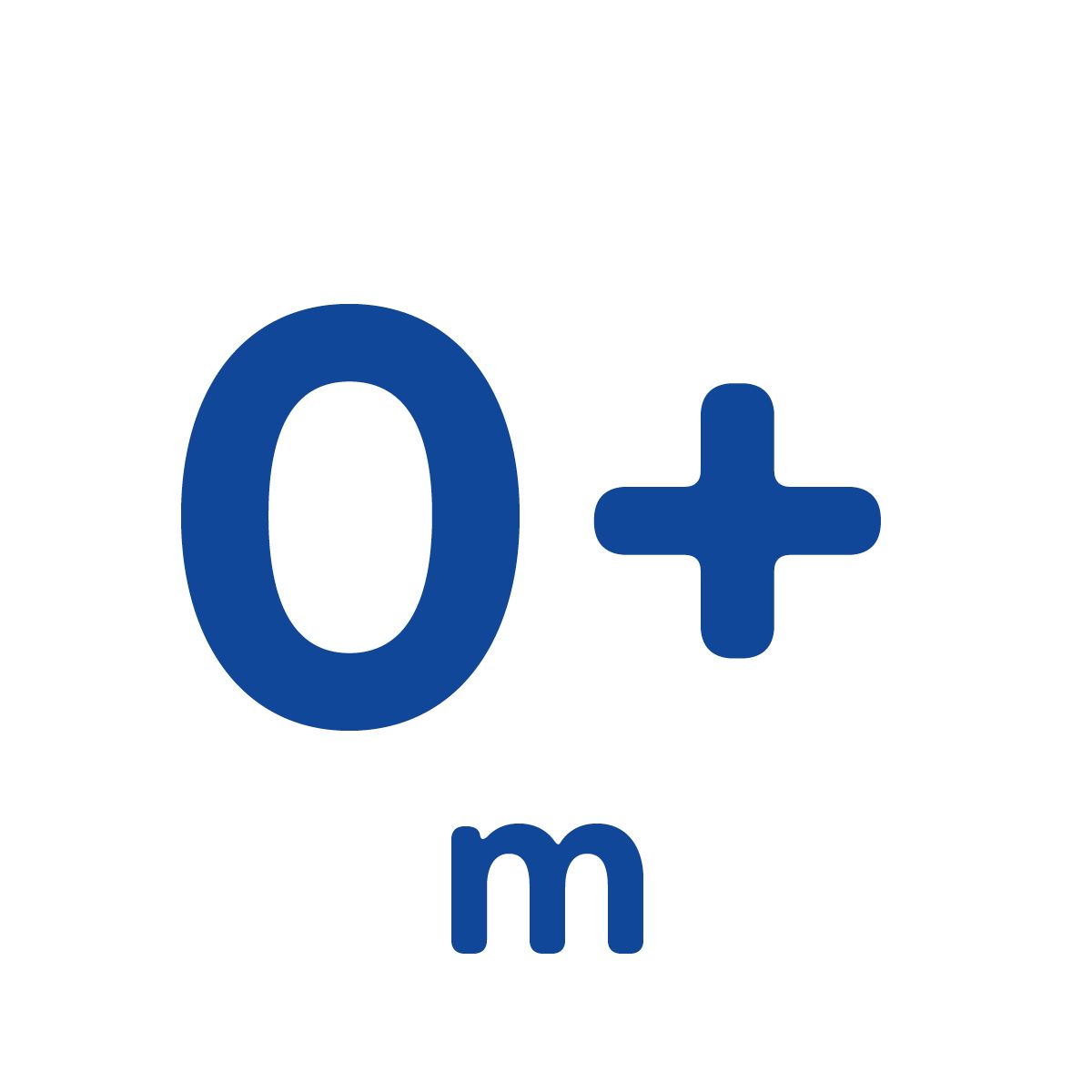
Para bebés de 0 meses
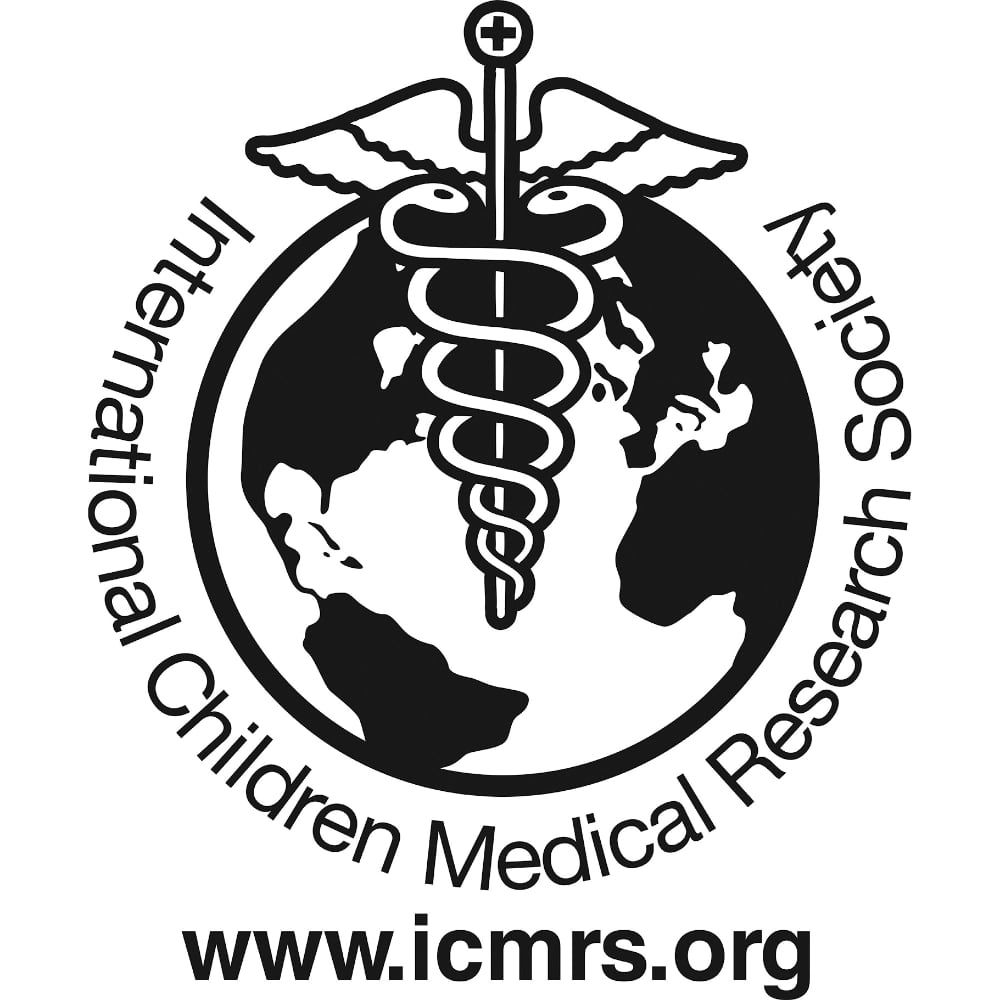
INNOVACIÓN DESARROLLADA CONJUNTAMENTE CON MÉDICOS
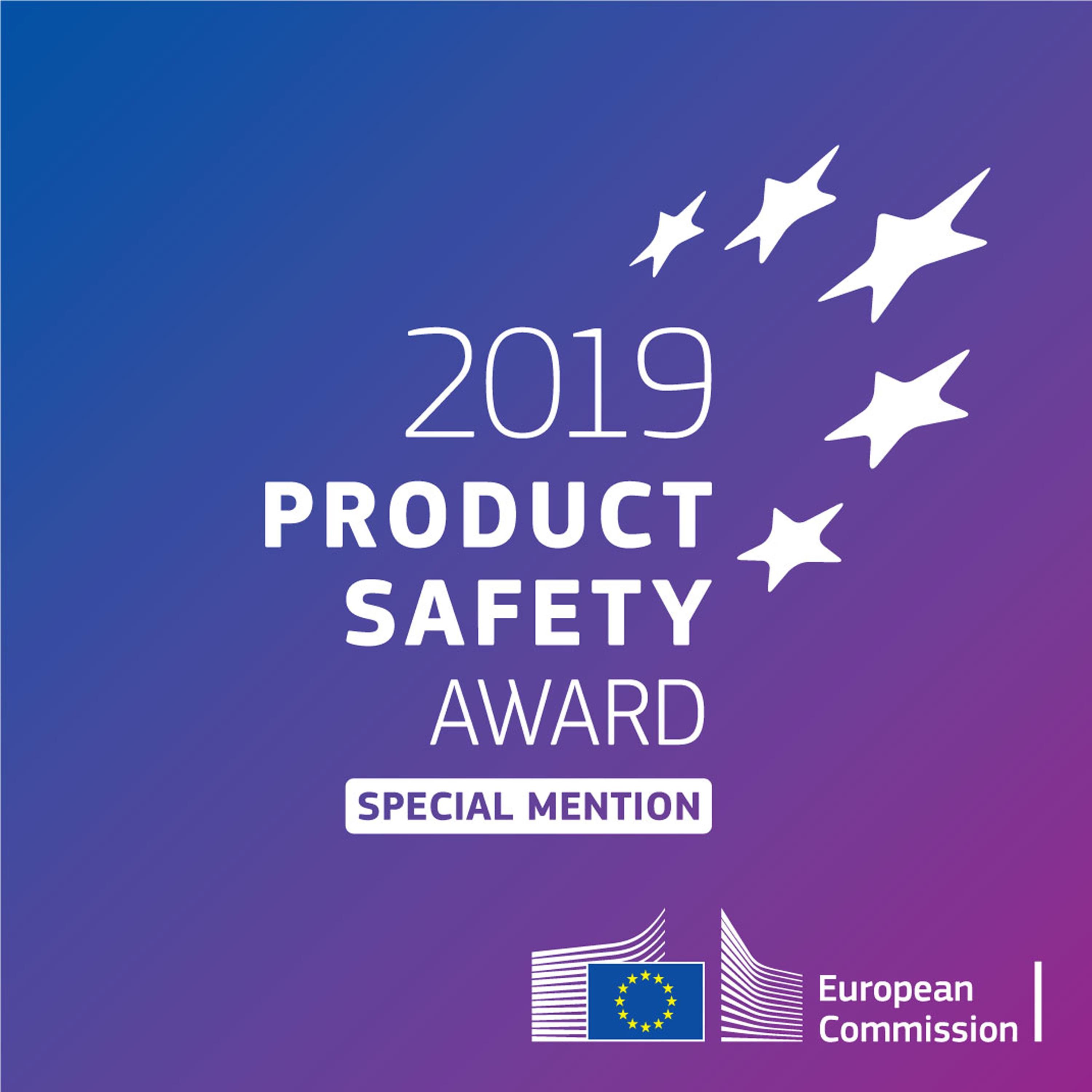
GALARDONADA CON EL PREMIO A LA SEGURIDAD DE PRODUCTO DE LA UE 2019
Bisphenol A (BPA) is an important component for the manufacturing of polycarbonate (PC), whereas Bisphenol S (BPS) is an organic chemical used to make polysulfone. Among other items, food packaging, plastic utensils and baby bottles are just a few examples of products made with PC, whereas the main usage of BPS is in thermal papers and inks. The problem: Trace amounts of chemical substances gradually leach out of the plastic into the food and might eventually get into the body. This can affect small children and infants in particular.
As a result of exposure to BPA, experts and studies have seen disruptions to the hormone system and brain, diabetes and heart damage as well as an increased risk of cancer. Although scientific evidence is not yet conclusive, the European Commission - based on the precautionary principle - has banned the usage of BPA in baby bottles in order to protect the health and safety of babies and small children.

